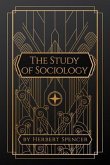In "The Origin of Man and of His Superstitions," Carveth Read embarks on an interdisciplinary exploration of the anthropological, psychological, and philosophical dimensions of human belief systems. This thought-provoking work melds meticulous research with penetrating insight, as Read investigates the evolutionary roots of spirituality and superstitions, elucidating how these impulses have shaped human societies throughout history. His literary style is characterized by a blend of rigorous argumentation and accessible prose, offering both scholarly depth and readability. Through a critical lens, Read situates his inquiries within the broader context of 19th-century thought, engaging with contemporaneous debates in science, philosophy, and sociology, making profound connections between early human instincts and modern religious practices. Carveth Read, an accomplished psychologist and philosopher, was deeply influenced by the intellectual currents of his time, particularly Darwinian theory and emerging psychological frameworks that examined the subconscious. His academic pedigree and extensive studies in philosophy led him to question the rational underpinnings of human belief. This work reflects Read's commitment to understanding humanity's psychological landscape, as he grapples with the nuances of faith and skepticism from both a historical and scientific viewpoint. This book is essential for those interested in the intersection of psychology, religion, and anthropology. Read's incisive analysis offers a foundational perspective that challenges readers to reconsider the complexities of human belief systems. It appeals to both scholars and lay readers alike, inviting them to engage with the enduring questions of existence, meaning, and the nature of human experience.
Dieser Download kann aus rechtlichen Gründen nur mit Rechnungsadresse in A, B, BG, CY, CZ, D, DK, EW, E, FIN, F, GR, H, IRL, I, LT, L, LR, M, NL, PL, P, R, S, SLO, SK ausgeliefert werden.









